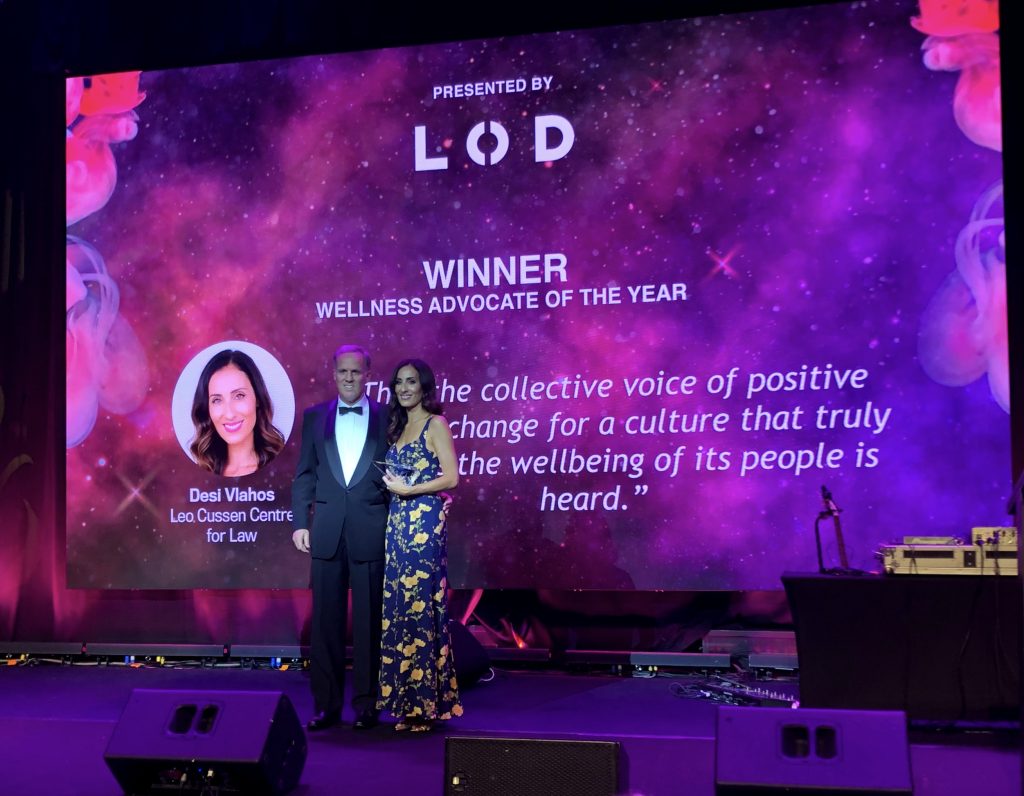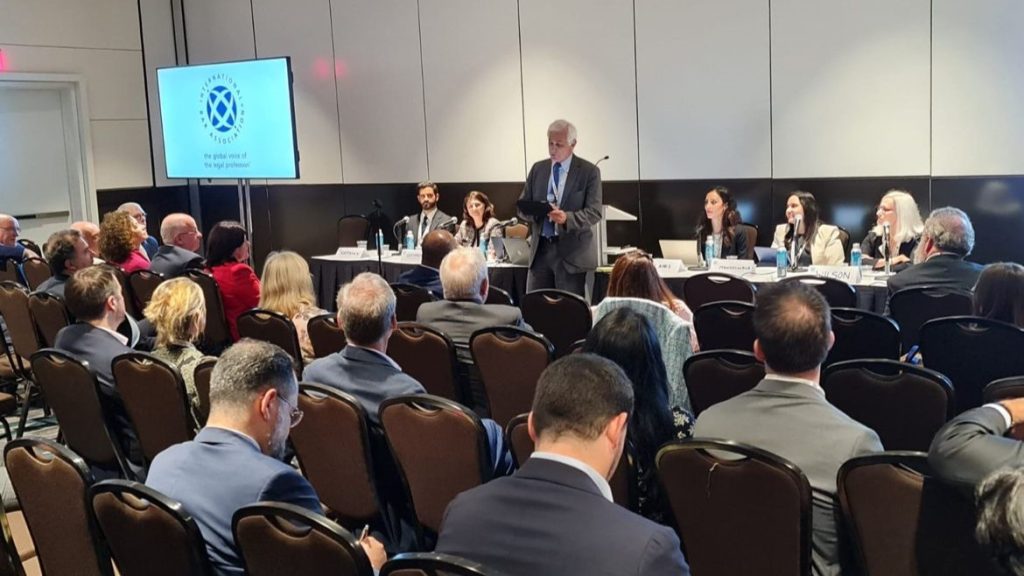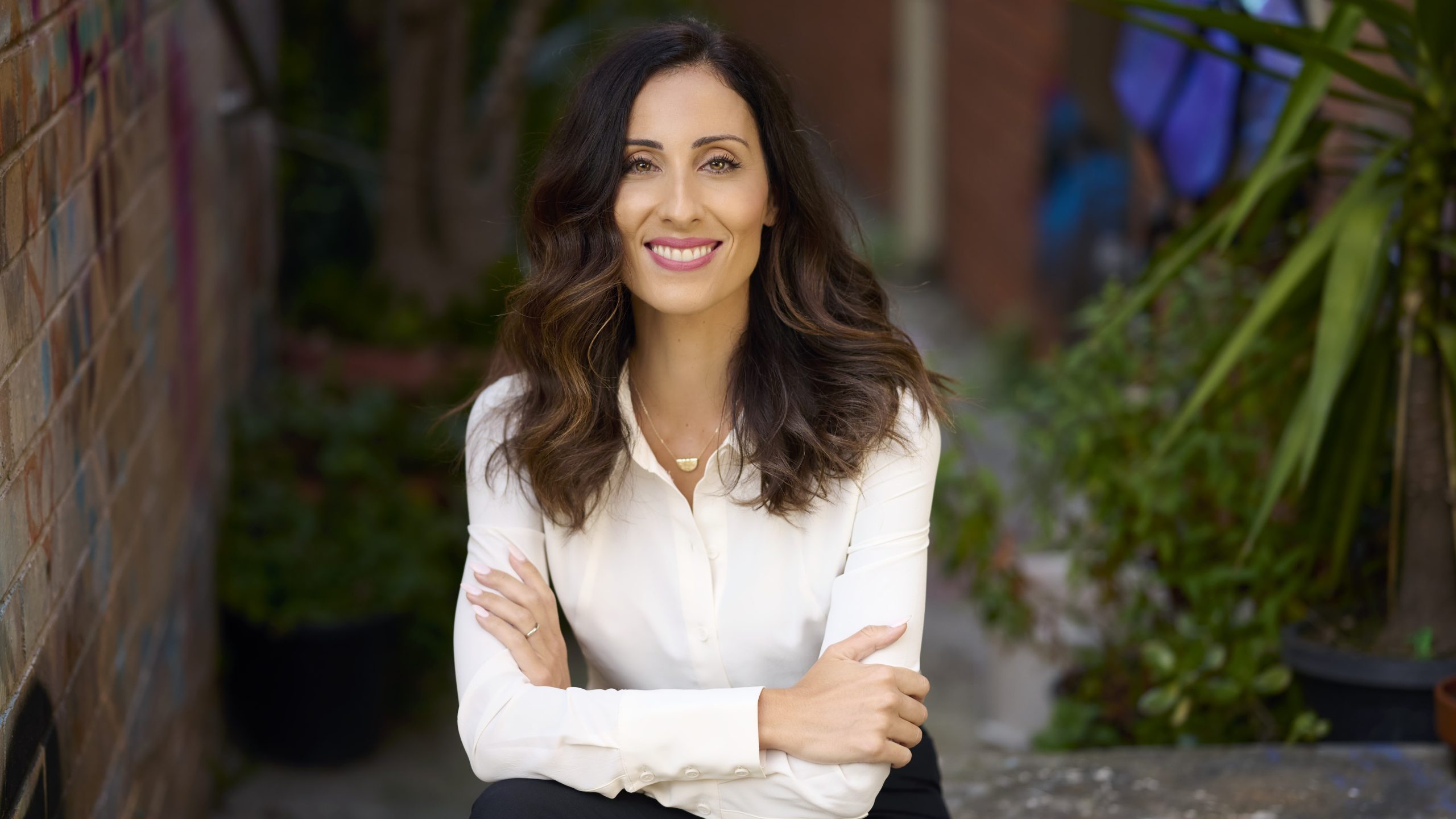Australian lawyer, Desi Vlahos, was humbled when she discovered she won ‘Wellness Advocate of the Year’ at Australia’s Women in Law Awards for the second year in a row.
The prestigious awards celebrate the outstanding women that influence Australia’s legal profession. That’s why The Greek Herald had to reach out to Desi and ask her how it feels to be recognised.
1. Tell us about yourself and your journey to practicing law.
I am originally from Perth, Western Australia and am part-second generation Greek, with my father hailing from Kastellorizo, Greece and my mother of Australian heritage. Growing up, I always had a streak for fairness and equity and without second guessing would often intervene in situations that would challenge my core values. I have a distant memory as a 6-year-old witnessing a classmate being teased at school. Even though I don’t recall us as close friends, being a bystander without action didn’t gel with me. In the same vein, I was on the receiving end of playground bullying in high school for my ‘different’ name. I knew from relatively young that injustice required advocacy and hence this propelled my ambition to study law. I completed my studies at Murdoch University and moved to Melbourne, Victoria shortly afterwards where I have been living since.
I worked for several years in private practice before having children. Whilst it was quite young to have children by today’s standards, I wouldn’t change a thing as I have been blessed with the opportunity to grow closely with my three children. I effectively took an early career break but continued to keep active through studies in literature, completing a Graduate Diploma in Education and ad hoc roles operating a sole practice. I later moved into legal education and have been a practical legal training mentor for 7 years assisting law graduates in their journey to admission to practice.
Working closely with graduates the year of the Hayne Royal Commission, probed my interest into the disconnect between the traditional approach in law to workplace mental health which relied on building personal resilience. It was from this experience that I spring boarded into becoming a mental health first aid trainer for the profession and launched my consultancy Wellceum this year to assist professional services integrate a wellbeing strategy to achieve the best possible psychological health and safety outcomes for their organisation.
I am a soon to be announced a Commissioner on the International Bar Association Wellbeing Commission charged with tackling poor mental health and promoting working practices to help to improve wellbeing within the legal profession.
2. How did you feel to be recognised as ‘Wellness Advocate of the Year’ at the Women in Law Awards?
It was an honour (and a surprise) to receive this accolade this year having also received it in 2021.
An international colleague of mine working in sustainable practice recently inspired me to articulate why I crusade for improvements in the profession. Upon winning, she repurposed her award to the collective voice of the people that have been tirelessly advocating for sustainable changes in her industry. She said, “this award is yours not mine.” I shared a similar sentiment when I won the award this year as this resonated with me and represents why I put myself forward in the work that I do.
This acknowledgement and support from the community and my colleagues’ spurs on my quest for sustainable and healthy environments that support the people who dedicate themselves to their clients, their work and access to justice.

3. What do you enjoy most about working in law?
As a legal academic, I feel very privileged to be in a position to steward my students through the challenges but also opportunities synonymous with the realities of practice. Our profession is constantly evolving and with rapid technological advancement, transformation is inevitable. We must not however leave behind the importance of legal ethics as the foundation of our system, including our functioning as healthy lawyers. I often feel that legal ethics may have spent too much time focusing on the social role and function of the legal profession that it sometimes forgets the humanity of the lawyer themself. In this regard, my vision is that we reinforce how the individual lawyer can maintain their humanity and relationships whole exercising their public professional role.
4. How does your Greek heritage influence your work?
As an appreciator of philosophy and literature, one of my favourite words is the Greek word “eudaimonia”. In 335 BCE Aristotle founded an official school called “The Lyceum.” Those that followed the Aristotelian doctrine came to be known as the Peripatetics due to Aristotle’s tendency to walk as he taught. The Lyceum was famous for being a centre for cooperative research, learning and education. Aristotle proposed that humans are social, rational animals that seek happiness or to “live well”. To that end, he proposed a system of ethics designed to help us reach eudaimoniaor human flourishing.
Eudaimonia involves achieving the best conditions possible for a person in every sense – not only happiness, but virtue and a meaningful life. As the stoics of Ancient Greece opined, we must remember that the chief ‘good’ in life is the practice of virtue. And virtue is to be practiced not to make oneself look good, or to achieve a personal goal, but to be practiced because it is good in itself – its own reward. Virtue therefore is a fundamentally atelic activity, and it keeps providing us with meaning throughout our life
Martin Seligman’s big idea is that there are three paths to a happy life: the pleasant life, the good life, and the meaningful life. The Good Life is about recrafting your work, love friendship and leisure to use strengths and spend more time in your values to have flow in your life. The more eudaimonia, the more satisfaction.
A good life, in the end, is a judicious mix of telic and atelic pursuits. We can set ourselves the goal of securing an enviable role, writing a book, or even being on a number of committees, but we must remember to not to lose sight of the here and now and the attention to the people we care about. These are things we do for our own sake, not because we are aiming at a distant goal, but because they are pleasurable, meaningful, and potentially last a lifetime. The alchemy of fulfilment is to set ourselves goals, live mindfully and remember to practice virtue, always.
My consultancy Wellceum takes it inspiration from Aristotle’s Lyceum and seeks to help us achieve eudaimonia through supporting organisations manage psychosocial risk, improve employee resilience, and create visible social impact via research, shared learning, and education.
5. What are your future plans?
Helping organisations to create a socially embedded culture that supports wellbeing through working closely with leadership is my plan both in Australia but also internationally with the IBA Wellbeing Commission. In doing so, the Greek proverb that “a society grows great when old men plant trees in whose shade they shall never sit” could not reign truer for our profession.


